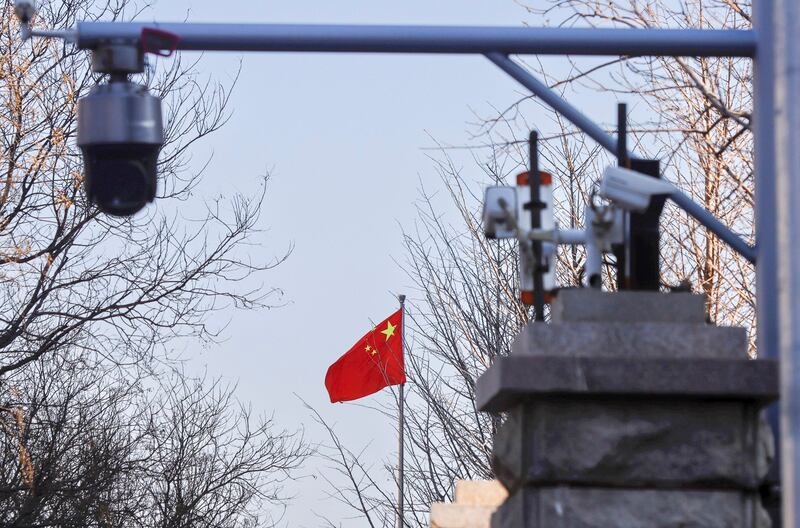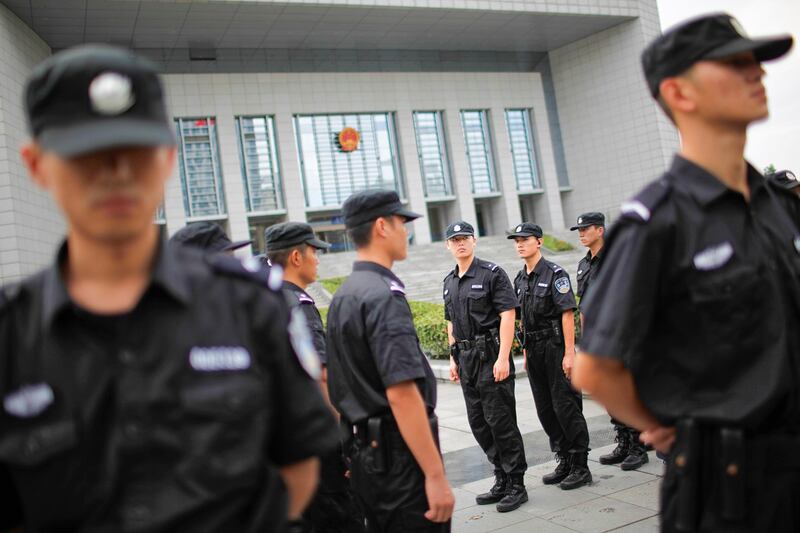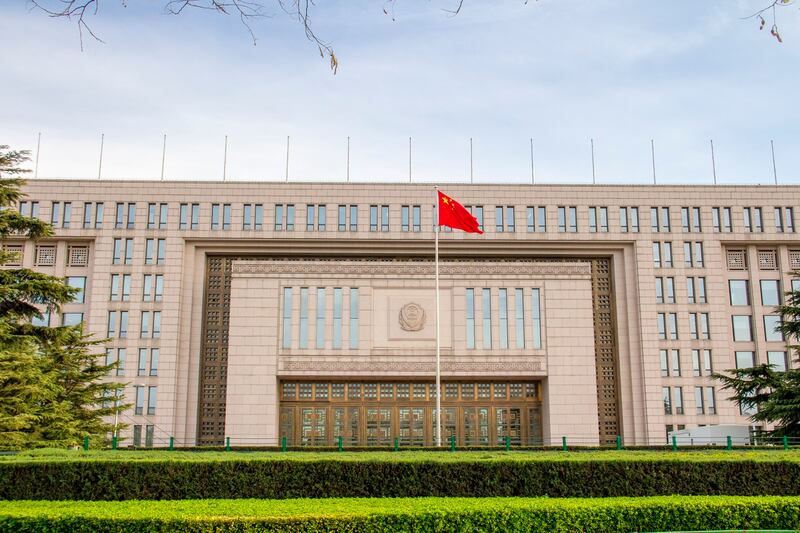Recent changes to the way the Chinese government will investigate cases involving "state secrets" and sensitive information have sparked concerns that foreign nationals and companies could be a target of a renewed focus on security under ruling Communist Party leader Xi Jinping, analysts told Radio Free Asia.
China's newly revised State Secrets Law, which takes effect on Wednesday, sets higher security requirements for companies and introduces the concept of a "work secret," while a slew of guidelines from the Ministry of State Security gives new powers to state security police to investigate Chinese citizens outside China, and arrest them if they return.
"Everyone is definitely feeling the chilling effect now," U.S.-based current affairs commentator Li Hengqing told RFA Mandarin. "The more the Chinese Communist Party keeps going with this, the more it will discourage foreign businesses and entrepreneurs from investing in China."
"This runs entirely counter to preferential policies that would encourage foreign investment."
The Law on Safeguarding State Secrets was revised and adopted by the National People's Congress Standing Committee on Feb. 27, the latest in a slew of new security legislation to be passed by Beijing in recent months.
The move follows a number of police raids last year on foreign consultancy firms including Mintz Group and Bain & Co, prompting concerns from foreign investors that Beijing's widening national security focus could hurt investor confidence.

Taiwan's government warned its citizens on Tuesday to avoid non-essential travel to China, saying the amended law has "greatly increased the risk of potentially breaking the law."
"The risks for foreign institutions operating and investing in China will also put pressure on non-profit or academic and scientific research exchanges and cooperation," the Taiwanese government's Mainland Affairs Council said, warning that conversations or any collection of information could run afoul of the new law, describing its definition of a "work secret" as vague and unpredictable.
According to the amended law, only the Ministry of State Security and military agencies have the power to decide what constitutes a state secret.
'Everything is seen as a secret'
Xia Ming, a professor of politics at New York's City University, said any foreign company operating in China will need to carry out market research, putting it at risk of violating China's growing body of security legislation.
"The first thing any company investing in China needs to do is carry out market research," Xia told RFA in a recent interview. "But China regards all kinds of data as confidential, because it touches on the political security [of the ruling party]."
"They think that even real economic data can be interpreted in a way that is politically unfavorable to the regime, so everything is seen as a secret," he said.

Li said the ongoing insistence on "national security" under Xi Jinping suggests that the current administration is willing to sacrifice economic growth on the altar of regime stability.
"Everything is done with the stability of the regime in mind," Li said. "They don't admit that this will come at the expense of the economy, but actually they don't care much about that, nor about the welfare of the people."
Xia said none of the recent amendments appear to target those higher up who have access to highly classified documents.
Instead, they are aimed at ordinary people or foreigners who might get hold of sensitive information, he said.
'An invisible expansion of powers'
Independent political commentator Chen Daoyin said the new provisions from the Ministry of State Security massively expand the powers of state security police to dictate the actions of organizations throughout China, if it deems that "national security" is at stake.
"State security agencies will be able to go into other organizations to carry out activities and provide training," Chen said. "If some organizations aren't doing enough to protect national security, they can tell them to do better."
"This is an invisible expansion of the powers of state security agencies ... making their presence felt in all areas," he said.

Exiled human rights lawyer Wu Shaoping agreed.
"State security police can hold the Sword of Damocles and use it to extract confessions from criminal suspects, even if they choose not to talk during interrogation," Wu said.
The effects of the new regulations will also be felt far beyond China's borders, he warned.
"If a Chinese citizen goes abroad and makes comments critical of the Chinese Communist Party, or blows the whistle on some scandal, or leaks information that the Chinese government considers secret, state security police will be able to arrest him if he one day returns to China," Wu said.
"Through these provisions, the Chinese Communist Party is engaging in long-arm law enforcement on foreign soil, and reaching out its tentacles to Chinese living overseas," he said.
Translated by Luisetta Mudie .
